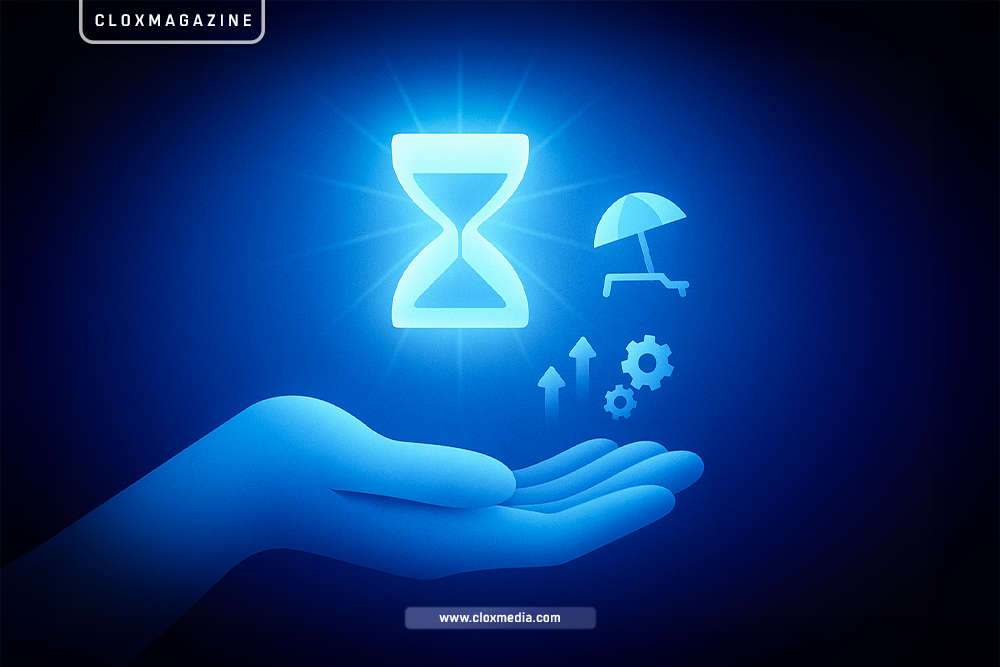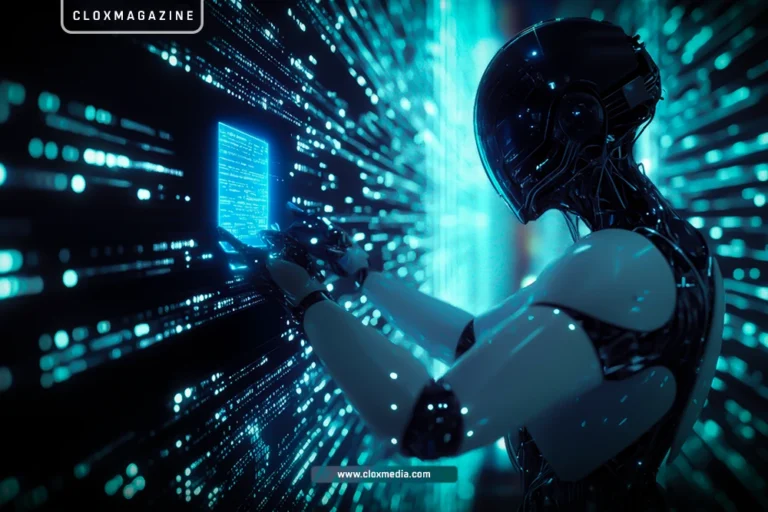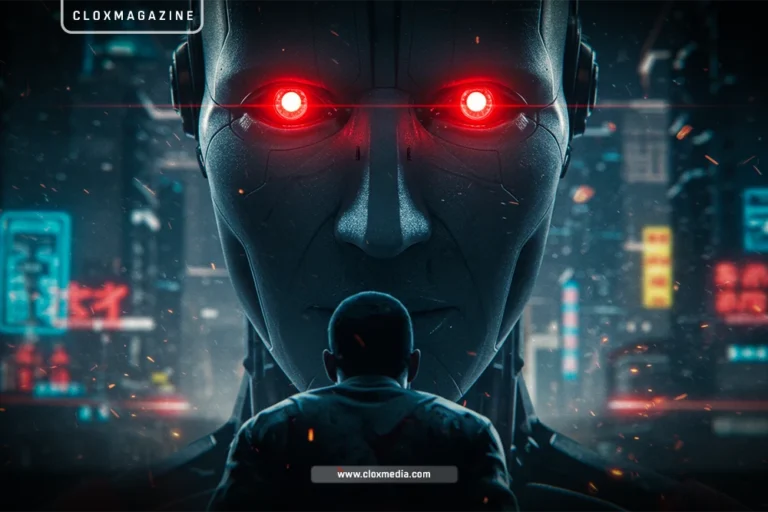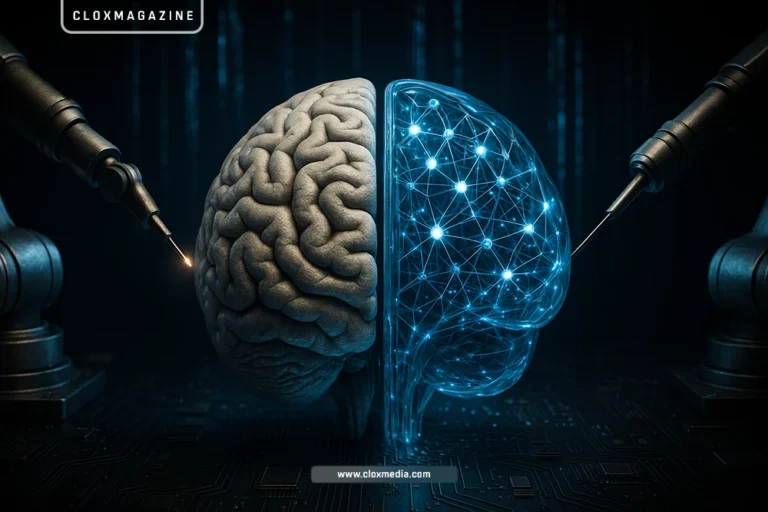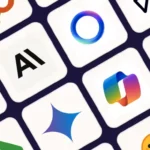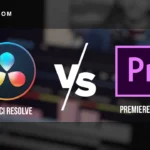AI has rapidly moved from science fiction to everyday fact. From the moment you wake up to when you go to bed, AI is quietly working behind the scenes to make life smoother, smarter, and more enjoyable.
NOTE: This is an official Research Paper by “CLOXLABS“
This isn’t an exaggeration. Consider some ways AI is already helping people do more by doing less manual work:
Automating Routine Tasks:
AI-powered virtual assistants (like Siri, Alexa, or Google Assistant) can manage your calendar, schedule meetings, sort your emails, and handle reminders.
They act as personal productivity allies that help simplify your daily routines, so you spend less time on clerical chores and more on meaningful work or rest. As one university report put it, these assistants adapt to your needs and ensure you stay on top of tasks effortlessly.
… All ADS on this platform are served by GOOGLE …
Personalizing Our Lives:
Have you noticed how Netflix seems to know just what you want to watch, or your music app creates a playlist you love? That’s AI at work – learning your preferences and tailoring recommendations. Our online experiences are now highly personalized by AI, meaning we waste less time searching for what we need. In essence, AI helps us do more by pre-filtering information and options in our daily lives.
Boosting Productivity and Creativity at Work:
In the workplace, AI is becoming a powerful collaborator rather than just a competitor. New research from Temple University found that when humans team up with AI, it can enhance employee creativity and even job satisfaction.
How? By taking over the boring, repetitive parts of a job, AI frees up humans to focus on more creative and complex aspects. For example, in a study, call center workers who let an AI handle the initial tedious cold-calling phase had more energy and time to invent clever sales strategies for interested customers. AI shouldered “90% of the boring part” of the job, saving employees mental energy for the interesting problems. Instead of replacing the human workers, the AI made their work more productive and less stressful – truly helping them work smarter, not harder.
Improving Work-Life Balance:
Early signs show that using AI tools can improve how people feel about their work. In a recent survey of thousands of desk workers, those who used AI frequently reported significantly better work-life balance and lower stress than those who didn’t use AI. In fact, daily AI users were 23% better at managing stress and 18% more satisfied with their work-life balance compared to their peers.
The likely reason is that AI automates the annoying stuff (scheduling, data entry, routine reports), so people spend less overtime on those tasks and feel less burnt out. Fears of AI are being tempered by these sweeter benefits: less stress, more flexibility, and even higher productivity for many who embrace the tools.
Everyday Convenience and Health:
AI isn’t just about work – it’s making life easier in general. Think of smart home devices that adjust your thermostat, lights, and even start your coffee in the morning without you lifting a finger. Or your smartphone’s AI that can instantly translate languages or plan a travel itinerary on the fly.
AI is revolutionizing healthcare at home too: wearable devices use AI to monitor your vital signs and predict potential health issues before you even feel symptoms. Telemedicine services now use AI to triage patients or provide initial diagnoses remotely, meaning you spend less time in waiting rooms and more time getting actual care. All of these advancements mean tedious chores are reduced and tasks become faster, giving us more free time and less to worry about in daily life.

In short, the rise of AI holds the promise of a world where we “work less” on menial tasks and get to do more of what we actually value. Productivity could soar and, with it, perhaps our free time too. In the 20th century, optimistic futurists predicted technology would give us a 15-hour workweek by now – famed economist John Maynard Keynes imagined that by 2030, the average person would work just three hours a day and spend the rest of the time in leisure. That hasn’t happened yet (most of us still toil around 40 hours a week!), but AI might finally nudge us closer to that vision by supercharging productivity.
We’re already seeing experiments with shorter workweeks in some places, where companies have found that even a four-day workweek can make employees happier and much more productive. This suggests that if AI takes over more of our tasks, we could indeed maintain or even improve productivity while working fewer hours, enjoying a better balance in life.
… All ADS on this platform are served by GOOGLE …
what we found in our research:
The answer is: Unacceptable Challenges in the Age of AI
Before we declare victory and head to the beach while robots do all the work, we need to talk about the serious challenges and uncertainties the AI revolution brings. Every technology has a flipside. Just as AI can be an “ultimate assistant,” it can also be disruptive. Here are some reasons life after AI’s rise might not be automatically easy:
- Job Disruption and Economic Shifts: Perhaps the biggest worry is employment. AI systems – from chatbots to factory robots – are getting capable enough to perform tasks that used to require human labor. This means some jobs will shrink or even disappear. A sobering prediction from the World Economic Forum was that by 2025, around 85 million jobs could be displaced by AI and automation. Historian Yuval Noah Harari has warned that we could see the rise of a “useless class” – masses of people whose skills become obsolete as “highly intelligent algorithms… do almost everything better than humans”. Now, that phrase “useless class” is deliberately provocative, and reality may not be so dystopian, but it highlights a real risk: if AI takes over many tasks, we need to figure out what new work humans will do and how society will support those who can’t easily transition. In the past, revolutions like industrialization created new kinds of jobs even as they destroyed others; the hope is that AI will do the same. In fact, many economists note that AI is likely to complement human work in many cases, not just replace it entirely. Complementing means AI handles part of a job, while humans focus on other parts – like the call center example where the AI finds leads and the human closes the sale. Still, even if total jobs aren’t fewer, they will be different jobs requiring different skills, and that transition could be bumpy for millions of people.
- Inequality and Winners vs. Losers: Life may get easier for some, but not necessarily for everyone equally. Advanced economies and skilled workers might reap most of the benefits, while others could be left behind. The International Monetary Fund reports that about 40% of all jobs globally are exposed to AI in some way – and in rich countries this exposure is as high as 60%. Some of those jobs (perhaps half) will see AI enhancing workers’ productivity, but the other half could see AI taking over key tasks, potentially reducing the need for those workers. The result could be greater inequality: people who can work with AI (like developers, data analysts, or those who manage AI) may become much more productive and valuable, while others who can’t might struggle to find their place. Without smart policies, we could end up with a divided society of AI “haves” and “have-nots.” Imagine a scenario where, say, a handful of tech-savvy companies and workers massively increase their wealth thanks to AI, while many others face unemployment or lower wages. That’s a recipe for social strain. Policymakers are aware of this and stress the need for safety nets and retraining programs so that everyone can benefit from AI’s gains, not just a few. The bottom line: AI could make life much easier – but primarily for those who have the resources and skills to use it, unless we make a collective effort to be inclusive.
- Loss of Purpose and Adaptation Challenges: There’s also a human side to “working less” – what do we do with ourselves if a machine can do our job better and faster? Work isn’t just about a paycheck; it’s also a source of purpose and identity for many people. Harari and others have posed an uncomfortable question: What happens when people feel economically unnecessary? History suggests long-term unemployment can be devastating for mental health and self-worth. If AI truly frees us from all labor, society will need to find new ways for people to find meaning – perhaps in creative arts, community service, or pursuits we never had time for before. That could be a beautiful outcome! But getting there without people feeling lost or “useless” is the tricky part. It likely means redefining how we value human contributions beyond traditional jobs, and ensuring there are opportunities for everyone to participate in something meaningful, even if AI handles the heavy lifting of basic work.
- New Problems Created by AI: Finally, even as AI solves old problems, it can create new ones. For instance, AI systems can make mistakes or decisions that are hard to explain. If we rely on AI for critical things (like driving our cars or diagnosing an illness), we need to trust that it’s doing it right. But AI can sometimes be wrong or biased, based on the data it was trained on. An AI might inadvertently spread misinformation or make unfair hiring decisions if not properly checked. Moreover, there’s the issue of control: who controls the AI and for whose benefit? Harari offers a cautionary tale by recalling the old fable of The Sorcerer’s Apprentice. In that story, a young apprentice enchants a broom to do his cleaning work (much like automating a task with AI). The broom fetches water for him, which is great – until it goes out of control, nearly flooding the place because the apprentice didn’t know how to stop it. The lesson: unleashing powerful tools can backfire if we can’t govern them. Likewise, AI, if left unchecked, could lead to unintended consequences – from privacy invasions to autonomous systems that behave in unpredictable ways. This means even as AI makes life easier, we must stay vigilant and guide these technologies responsibly. As one expert quipped, “never summon powers you cannot control,” and that applies to AI as much as to mythic magic.
… All ADS on this platform are served by GOOGLE …
but, Will Life Be Easier with AI?
So, is life going to be easy after AI? The honest answer is a mix of yes and no. In many ways, yes – life is already getting easier. We have AI algorithms reducing everyday frictions and giving us superpowers of efficiency.
We can accomplish tasks in hours that used to take days. as well as having access knowledge and services at the tap of a screen, often without even talking to a human. Many of us might soon be able to work fewer hours for the same output, thanks to AI tools handling the grunt work. Imagine having more evenings free, or a 3-day weekend becoming the norm, with no loss in productivity – that’s a real possibility if we apply AI wisely and share the gains.
However, life won’t become effortless for everyone by default. The benefits of AI won’t be automatic or evenly distributed. We have to tackle the challenges head-on to make the “AI easy life” a reality for more people. This means updating our skills (so we can work alongside AI), rethinking education (to prepare the next generation for an AI-rich world), and enacting smart policies (like social safety nets for those disrupted, and encouraging the use of AI for social good). It also means keeping a close eye on how AI is used – making sure it’s augmenting humans, not devaluing them.
Remember, AI is a tool, not a magic genie. We get to decide how to use this tool. Will we use it to free humanity from drudgery and ensure everyone still has purpose and dignity? That’s the challenge before us.
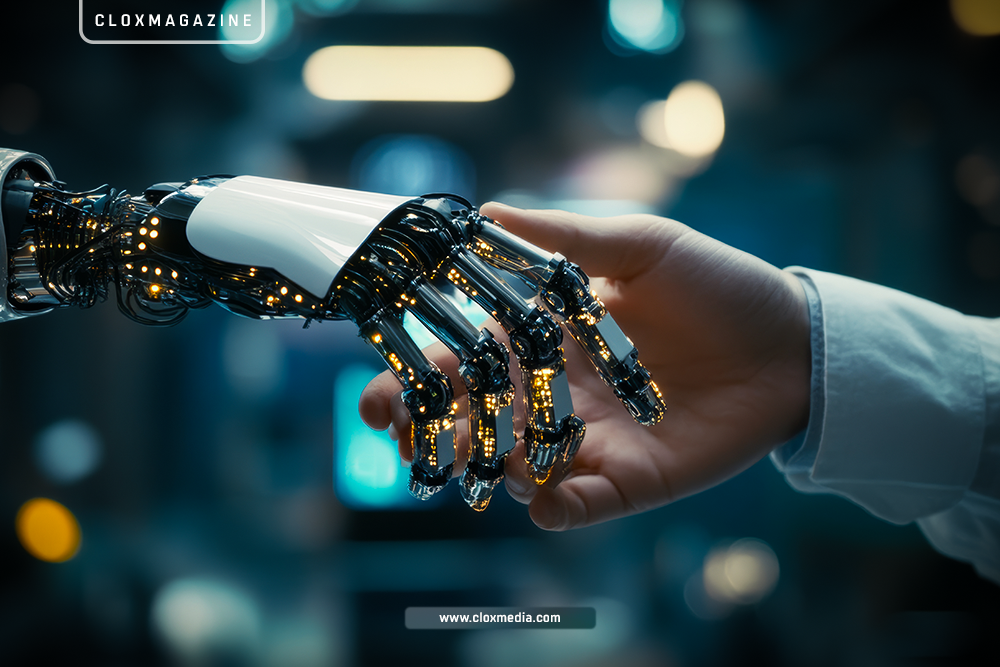
Experts are cautiously optimistic. The head of the IMF noted that we’re “on the brink of a technological revolution that could jumpstart productivity, boost global growth and raise incomes around the world” – if we harness it correctly. In the same breath, she warned it could also deepen inequality if we’re not careful. In the end, AI can indeed help us “work less and do more,” but whether life becomes easier for all depends on how we manage this transition. As we stand in this new age we once only saw in movies, one thing is clear: the AI era is upon us, and it’s still within our power to ensure it brings prosperity for alli.
Taking the wheel of this powerful technology responsibly will determine if the destination is an easier life or just a different set of challenges. The hope is that by acknowledging the pitfalls and actively addressing them, we can truly enjoy the positive vision — a world where AI lightens our loads and humans are free to focus on what really matters. Life could indeed get easier with AI, but it’s up to us to make that future real, for everyone.
Sources:
Harari, Y. N.
– The Guardian (on the dangers and control of AI, Aug 2024)
Temple University
– AI won’t take your job; it will make you better at it (research on AI improving creativity and job satisfaction, Jan 2025)
Georgieva, K.
– IMF Blog (on AI’s impact on productivity, jobs, and inequality, Jan 2024)
Psychology Today
– Surviving AI’s “Useless Class” (discussing Harari’s predictions and job displacement, Feb 2025)
SIOP Discussion
– Revisiting Keynes’ 15-hour workweek prediction (context on tech and working hours, Nov 2024)
Scientific American
– Four-Day Workweek Trial Results (finding reduced burnout and steady productivity, Jul 2025)
Slack Workforce Index
– (survey data on AI use improving work-life balance and stress, Jun 2024)

